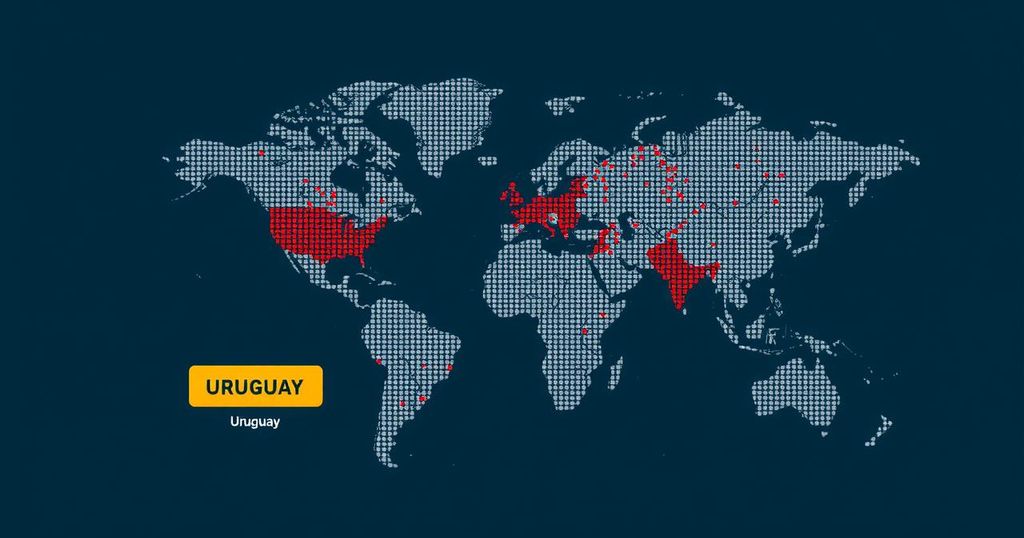Uruguay’s recent elections showcased a strong public disapproval of authoritarian crime policies, exemplified by Guido Manini Ríos’s minimal electoral support. Voters favored the moderate Frente Amplio coalition and rejected proposals to dilute civil liberties in favor of enhanced security measures. This trend underscores a regional preference for democratic solutions over severe policies often observed in neighboring countries facing similar crime issues.
Uruguay’s recent presidential election presents a compelling narrative regarding crime and governance in Latin America. Despite rising concerns regarding violent crime, voters overwhelmingly rejected extreme security policies proposed by the Cabildo Abierto party, led by former army chief Guido Manini Ríos. He garnered only 3 percent of the vote, illustrating that the electorate remains skeptical of authoritarian approaches to crime. In contrast, the leftist Frente Amplio coalition, which advocates for civil liberties and moderate strategies, won significant support, with its nominee Yamandú Orsi receiving the highest number of votes. Furthermore, a proposed constitutional amendment to lift the ban on nighttime police raids was rejected by a majority, underscoring a collective preference for democratic norms over coercive governance. Moreover, this election reflects broader trends in Latin America, where traditional parties are encouraged to adopt thoughtful crime management strategies rather than ceding ground to radical populists. Uruguay observed a doubling of its homicide rate from 2011 to 2018, yet the violent crime narrative does not justify eroding civil liberties. Instead, voters appear to favor a more measured response to increases in organized crime, pointing to Uruguay’s pursuit of responsible reforms and strategies that do not compromise democratic principles. The nation has been proactive in implementing reforms aimed at enhancing law enforcement and intelligence practices while simultaneously considering socioeconomic factors contributing to crime, such as poverty. Ultimately, the results from Uruguay’s election contain valuable lessons for the region. In contrast to countries like El Salvador, where severe lockdown measures have drawn praise among some factions for reducing crime, Uruguay’s commitment to upholding democratic values and integrating community-focused strategies should serve as a model for addressing the complex challenges wrought by crime. As the demands for safety echo across Latin America, it is vital for governments to embrace methods that reinforce, rather than undermine, democratic institutions.
The dynamics of crime and public policy in Latin America have evolved significantly, with rising violent crime generating considerable panic among citizens. Countries like Honduras and Ecuador have instituted severe measures under the guise of addressing security threats, reflecting a global trend toward authoritarian practices justified by crime rates. In stark contrast, Uruguay, which has been grappling with increasing incidents of violence attributed to organized crime, opts for a response rooted in democratic values and community engagement. The recent presidential election illustrated a conscious rejection of populism and iron-fisted tactics, showing that citizens are looking for safety solutions that do not compromise their constitutional rights.
In conclusion, Uruguay’s recent electoral outcomes illustrate a robust public desire for security measures that respect the rule of law and democratic integrity. Voters have decisively dismissed authoritarian proposals, advocating instead for sensible policies that address the root causes of crime without infringing upon civil liberties. This trend signals a rejection of extreme measures that have gained momentum in other parts of Latin America, suggesting that Uruguay’s approach could inspire broader regional transformations that prioritize democracy and responsible governance in the face of organized crime.
Original Source: foreignpolicy.com







